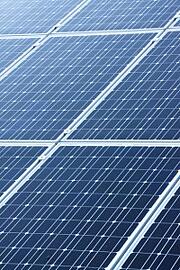Grid Capacity May Limit Distributed Solar Energy Growth
Although distributed solar is unquestionably a major opportunity, HELCO is struggling with how the current electricity grid will handle such an uptick in distributed generation. Rooftop distributed solar has grown exponentially in the state, with installations doubling each year. However, grid circuit loads reportedly are reaching unstable and unsustainable levels, which could cause voltage spikes that damage appliances, electronics, and the utility’s own equipment. As a result, HELCO moved to implement a strict interconnection approval process last year. This action created immediate gridlock of solar installation approvals, frustrating both homeowners and solar developers.
To address the issue, HELCO’s energy plan proposes to end the current and popular net metering program, where the utility purchases excess power from customers at market prices, and implement a flat fee for infrastructure and maintenance with additional fees charged to distributed generation customers. These fees would be used to upgrade the electricity grid to increase the integration of solar energy and to optimize control equipment to ensure safety and prevent outages.
 Not surprisingly, the proposal has sparked controversy. Many net metering customers have invested heavily in installations and argue that the program was originally envisioned to help customers offset their costs. The utility argues for fairness across its customer base. According to the utility, the net metering model is no longer sustainable because net metering customers are shifting the cost of grid maintenance and other fixed costs for operational services they receive from the utility to non-net metering customers. And the utility is not able to collect enough from non-net metering customers to maintain the grid.
Not surprisingly, the proposal has sparked controversy. Many net metering customers have invested heavily in installations and argue that the program was originally envisioned to help customers offset their costs. The utility argues for fairness across its customer base. According to the utility, the net metering model is no longer sustainable because net metering customers are shifting the cost of grid maintenance and other fixed costs for operational services they receive from the utility to non-net metering customers. And the utility is not able to collect enough from non-net metering customers to maintain the grid.
Under the proposed plan, utility customers would pay fees based on several components. First, every customer would pay a flat fee for services. Second, there would be an energy fee. Customers with solar installations would be eligible to lower their energy component of the fee. However, even though the electricity bills for the customer base, as a whole, will decrease, it appears that customers previously participating in the net metering program will see their bills increase due to the introduction of the flat fee for services.
Conclusion
HELCO is one of the first public utilities to face this technical question. As distributed solar grows in popularity and efficiency in other states and cities, similar issues will be faced by other state PUCs. Many eyes will be watching the evaluation and decision process of the Hawaii PUC.



.jpg?width=220&name=Sullivan%204c(B2402503).jpg)